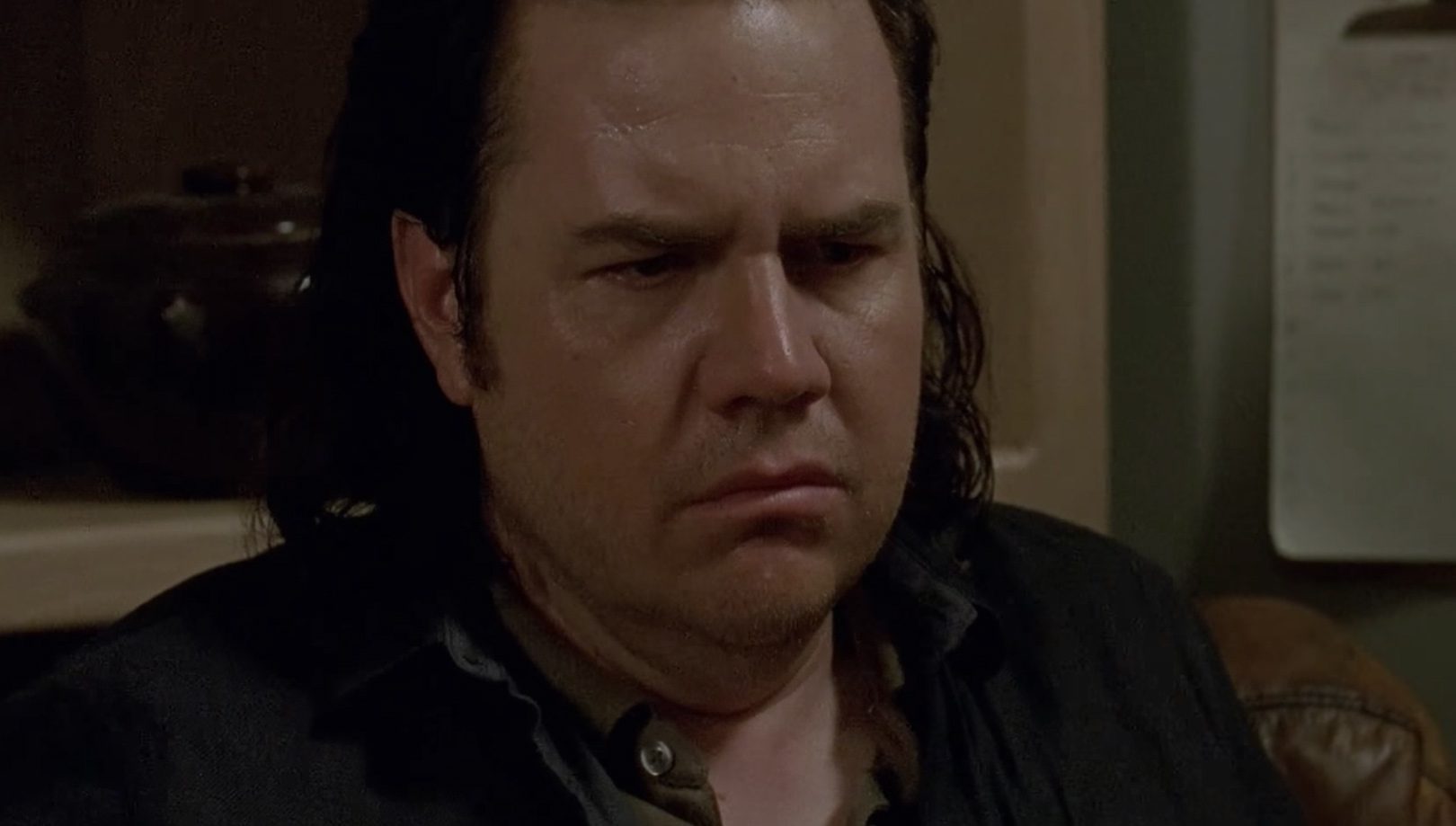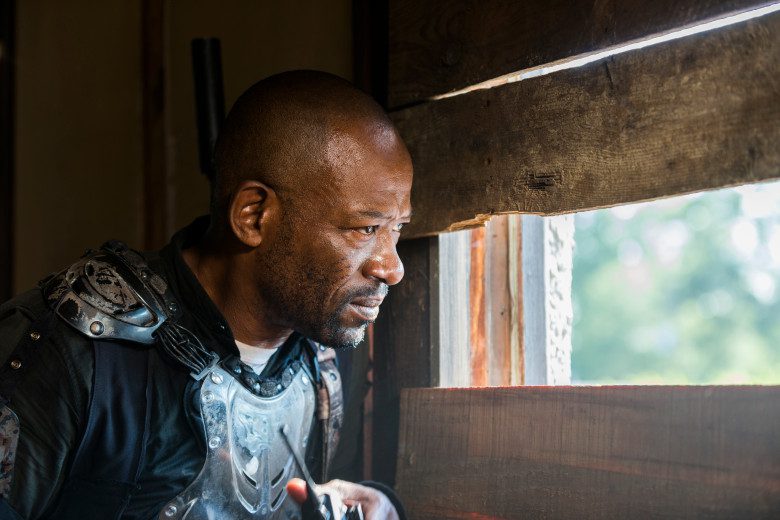Next week, The Walking Dead will air its mid-season finale. Whether it leaves us awestruck, or limps across the finish line remains to be seen, but with the (temporary) end looming, it’s time for a place-setting episode. I’ve griped about these in the past, in reviews of almost every show I’ve written about here. But they’re a necessary evil. The Walking Dead is trying to go back to its roots this season, balancing explosive action with intense, character-based drama, and sometimes it works really well (i.e. “Some Guy”). Other times, you get “Time for After,” which, while not a disaster, is too uneven in its execution.
For starters: the show has absolutely no idea what to do with the Scavengers. The fact that they constantly switch sides means that they’re not much of a threat (shades of It’s Always Sunny in Philadelphia‘s “Frank Retires,” in which Mac constantly tells anyone who will listen that he’s playing both sides). It’s a bummer, because the junkyard is an interesting location, and one wonders why their speech devolved so quickly despite the fact that, in TWD time, the world ended only about eighteen months ago. But there’s not enough here; hell, the only Scavenger the show has bothered to name is Jadis. Pollyana McIntosh does good work in the role, but the writing is doing her a disservice. In what will become a running theme of “Time for After,” it becomes really grating to spend extended amounts of time with certain characters who have a, let’s say, unique style of speaking.
McIntosh steers clear of any histrionics, and her monotone delivery helps – she never seems particularly thrilled by what she’s doing. If anything, she seems bored, which is kind of a scary prospect: how do you reason with someone who can’t even become emotionally invested in killing you? I like the addition of her weird preoccupation with sculpting Rick, but these scenes fall flat because they play out just like the last time the Scavengers forced Rick to fight a walker. (To the show’s credit, the fight scene is pretty good, and it’s exciting to watch Rick use a walker as a weapon.) And what’s worse, it ends on a punchline: Rick has Jadis down, face-to-disembodied-head with a walker, and the second he lets her up she wants to join up with him. Beyond that, it’s frustrating as hell, because Rick is going to fall for this once again, knowing, as we all do, that Jadis will ultimately betray him. I’m sure the Scavengers are in the graphic novels, and I’m sure they might have a clearer point, but on the show, they are narratively useless, and have long since overstayed their welcome. Find something else for McIntosh to do (like play the villain in a Bond movie or something), because she’s the best part of these scenes.
“Time for After” is a very Eugene-heavy episode, and if you thought Jadis’s dialect got tiring, wait until you spend about thirty minutes with Eugene. Like with McIntosh, I don’t blame Josh McDermitt for any of this. He does a fine job as Eugene, and has no trouble delivering his flowery yet mechanical dialogue. From McDermitt, Eugene’s long pronouncements and circuitous sentence structure start to sound almost mellifluous, almost poetic. But that only happens every so often, because Eugene (along with Jadis and Ezekiel) is by far this show’s most written character. Only Negan has worse dialogue, and the end result of all this is that you are never unaware of the fact that you are watching an actor named Josh pretend to be someone named Eugene on a set in Atlanta. Again, not McDermitt’s fault, but the writing here is nearly atrocious. In small doses, Eugene is fine, but to give him an entire episode is asking for trouble.
That being said, how was the actual episode? The meat of it focused on Eugene, and his attempts to save Sanctuary. For a good while, it’s actually not bad. I think the weak link of TWD is the writing, not the acting, so I have no problem when the show wants to take two actors and stick them in a room together. Eugene and Dwight get a nicely tense scene wherein Eugene confronts Dwight about his clandestine activities. Director Larry Teng shoots this in nicely claustrophobic close-up, and both actors do fine work. For someone who’s always thought of himself as a coward, it takes courage for Eugene to confront Dwight, who, for his part, doesn’t care that he’s been found out. They both give each other an ultimatum: do nothing. Not a lot gets resolved, but the scene lands because these characters have history together, and the show knows that, and uses it well.
Elsewhere, there’s some business with Daryl, Michonne, and Tara storming Sanctuary, with Morgan and some others providing sniper cover. It doesn’t matter all that much, but it does get three of our own inside Sanctuary in time for the finale. This whole C-plot is mostly notable for how inconsistent Lennie James is with his accent. He’s usually pretty good, but in “Time for After” he was sounding very British.
What “Time for After” gets the most right is its portrayal of Eugene’s fanatical devotion. McDermitt does some solid facial acting as Sanctuary is overrun with walkers; you see that this is the only place he’s ever really felt accepted, a fact underscored by Negan telling him, “You are exceptional.” Eugene wants to make more bullets, and is okay with the fact that Negan plans on unleashing hell on Rick (throughout the episode, he refers to his former friends as “travelling companions”) – but he stops short of betraying Dwight. It’s an interesting moment, one I hope the show builds on, because it shows a surprising level of nuance to what was once a side character. Eugene will never be as important to The Walking Dead as he is to Negan, but episodes like “Time for After” start to make a case for him.
3/5



